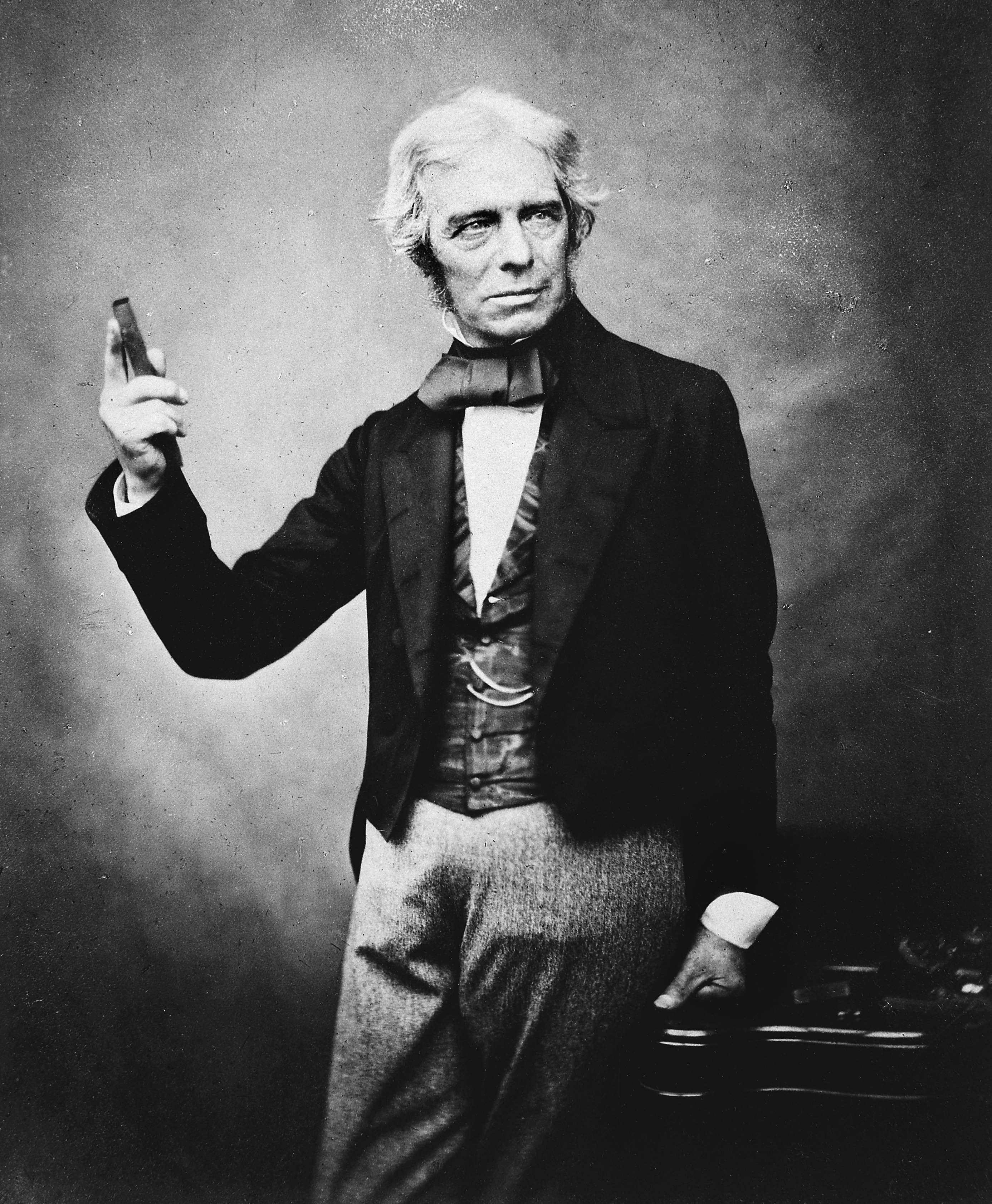Faraday << FAIR uh day >>, Michael (1791-1867), one of the greatest English chemists and physicists, discovered the principle of electromagnetic induction in 1831 (see Electromagnetism). He found that moving a magnet near a coil of copper wire, or moving the wire near a magnet, caused an electric current to flow in the wire. The electric generator and the electric motor are based on this principle. Joseph Henry, an American physicist, discovered induction shortly before Faraday, but failed to publish his findings (see Henry, Joseph).

Faraday’s work in electrochemistry led him to discover a mathematical relationship between electricity and the valence (combining power) of a chemical element. Faraday’s law states this relationship. It gave the first clue to the existence of electrons (see Electron). Faraday introduced ideas that would become the basis of field theory in physics. He maintained that magnetic, electric, and gravitational forces are passed from one body to another through lines of force, or strains in the area between the two bodies.
Faraday was born on Sept. 22, 1791, near London. After dropping out of school at the age of 13, he became apprenticed to a bookbinder. The apprenticeship gave him access to scientific literature. After completing the apprenticeship, Faraday continued his pursuit of the sciences. In 1813, he attended lectures by the English chemist Sir Humphry Davy. Soon after, he approached Sir Davy with notes he had taken at the lectures. Sir Davy recognized Faraday’s talent and made him his personal secretary. Soon after, Faraday became Davy’s chemical assistant at the Royal Institution in London. Faraday remained there for 54 years. Although never formally educated, he received an honorary doctorate degree from the University of Oxford in 1832. The next year, he became the Fullerian Professor of Chemistry at the Royal Institution, a post he kept until his death. Faraday was a popular lecturer. He gave scientific lectures for children every Christmas. The most famous of these lectures is called “The Chemical History of a Candle.” Faraday died on Aug. 25, 1867.
See also Electricity (Electromagnetism).
